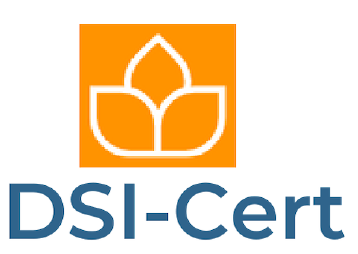In today’s globalized business landscape, supply chain management plays a pivotal role in driving organizational success. From sourcing raw materials to delivering end products to customers, a well-orchestrated supply chain can significantly impact a company’s efficiency, profitability, and customer satisfaction. Let’s delve into the world of supply chain management and uncover how it can be a game-changer for businesses.
Understanding Supply Chain Management: Supply chain management (SCM) refers to the coordination, integration, and optimization of various processes involved in delivering goods and services to consumers. It encompasses every step of the journey, including procurement, production, distribution, logistics, and customer service. An effective supply chain is designed to minimize costs, reduce waste, enhance product quality, and ensure timely delivery.
Key Components of Supply Chain Management:
- Planning: The first step involves forecasting demand, aligning production schedules, and devising strategies to meet customer needs. Accurate planning enables companies to allocate resources effectively and avoid bottlenecks.
- Sourcing: Selecting reliable suppliers, negotiating contracts, and managing relationships with vendors are integral to maintaining a steady flow of high-quality raw materials or components.
- Manufacturing/Production: This phase involves transforming raw materials into finished goods while optimizing efficiency and quality. Lean manufacturing principles and automation technologies often play a crucial role here.
- Distribution: Managing inventory, warehousing, and transportation efficiently ensures that products are delivered to the right place at the right time. This step minimizes storage costs and enhances customer satisfaction.
- Logistics: Efficient logistics involve selecting the best routes, modes of transportation, and carriers to reduce transit times and costs while ensuring product safety.
- Information Systems: Modern supply chains rely on advanced technologies for real-time tracking, demand forecasting, and data analytics. These insights help make informed decisions and respond promptly to changing market conditions.
Benefits of Effective Supply Chain Management:
- Cost Savings: Optimized supply chains minimize waste, reduce inventory carrying costs, and lower transportation expenses, contributing to overall cost savings.
- Enhanced Efficiency: Streamlined processes and reduced lead times lead to greater operational efficiency, allowing companies to meet customer demands promptly.
- Improved Quality: Effective supply chain management ensures consistent product quality by monitoring and controlling each production stage.
- Risk Mitigation: A diversified supplier base and contingency plans help mitigate risks associated with disruptions like natural disasters or geopolitical events.
- Customer Satisfaction: On-time deliveries and product availability enhance customer satisfaction and loyalty, ultimately boosting the company’s reputation.
Challenges in Supply Chain Management:
- Globalization: Dealing with complex global supply chains introduces challenges related to cultural differences, regulations, and long lead times.
- Demand Variability: Fluctuations in customer demand can lead to overstocking or stockouts if not managed properly.
- Supply Chain Disruptions: Unexpected events such as supplier bankruptcy, natural disasters, or geopolitical tensions can disrupt the supply chain.
- Technological Advancements: While technology offers solutions, integrating new systems and ensuring data security can be challenging.
The Future of Supply Chain Management: The digital era is revolutionizing supply chain management. Technologies like the Internet of Things (IoT), artificial intelligence (AI), and blockchain are transforming how supply chains operate. Real-time tracking, predictive analytics, and smart contracts are becoming integral to managing risk and optimizing processes.
In conclusion, supply chain management is no longer just a logistical function; it’s a strategic asset that influences a company’s competitiveness and success. By adopting best practices and embracing emerging technologies, businesses can create agile, responsive, and efficient supply chains that drive growth and innovation in the modern business landscape.





